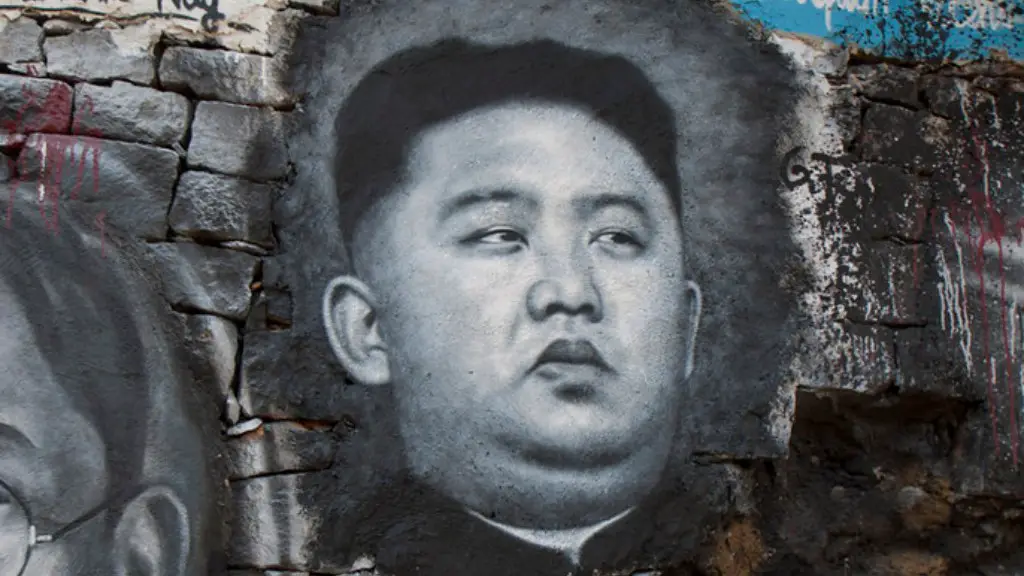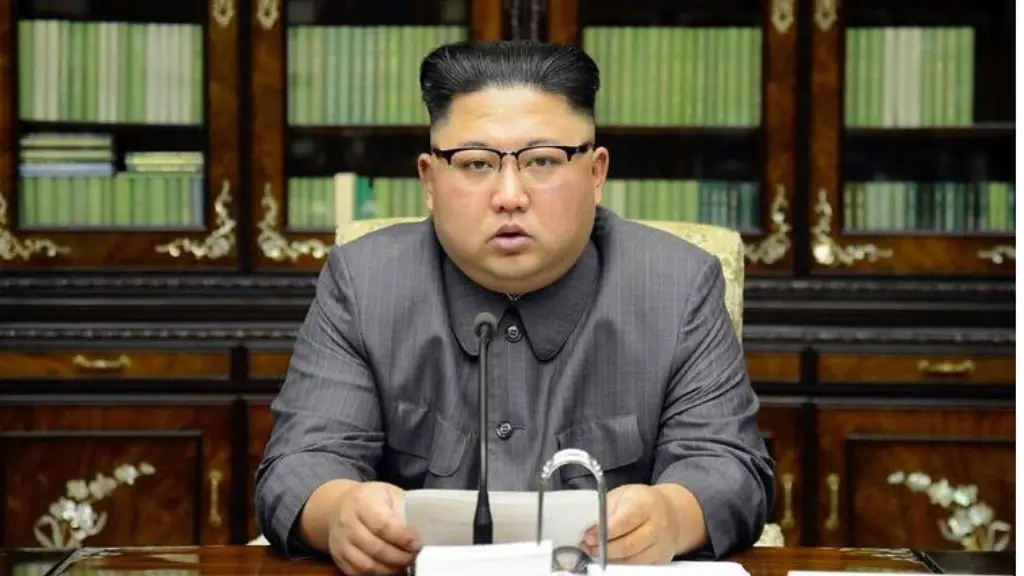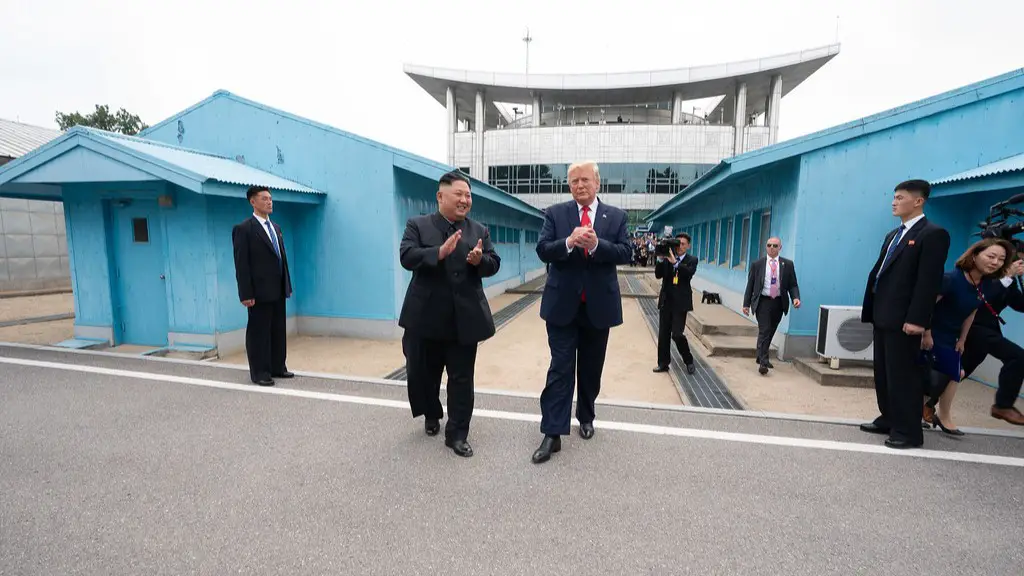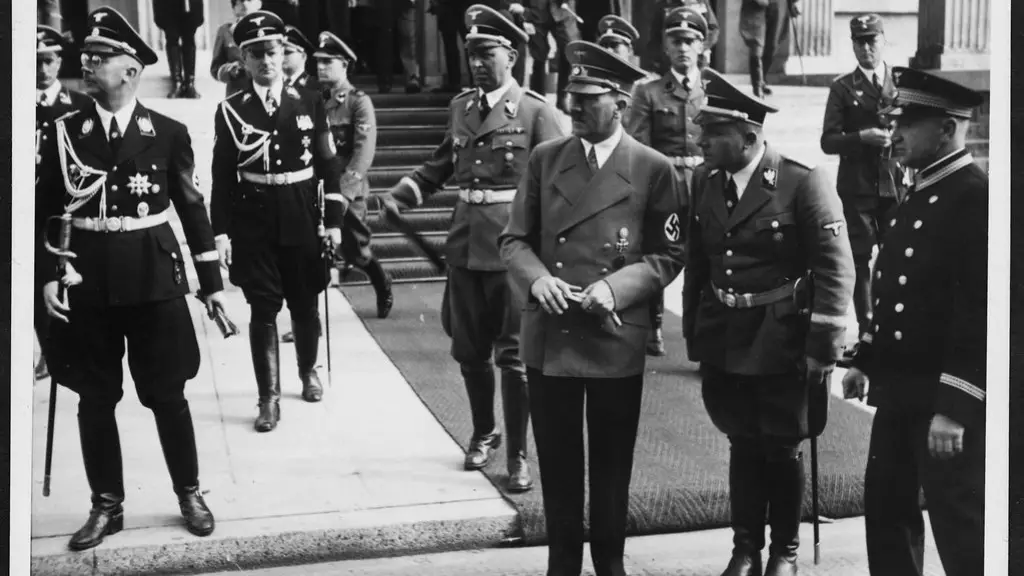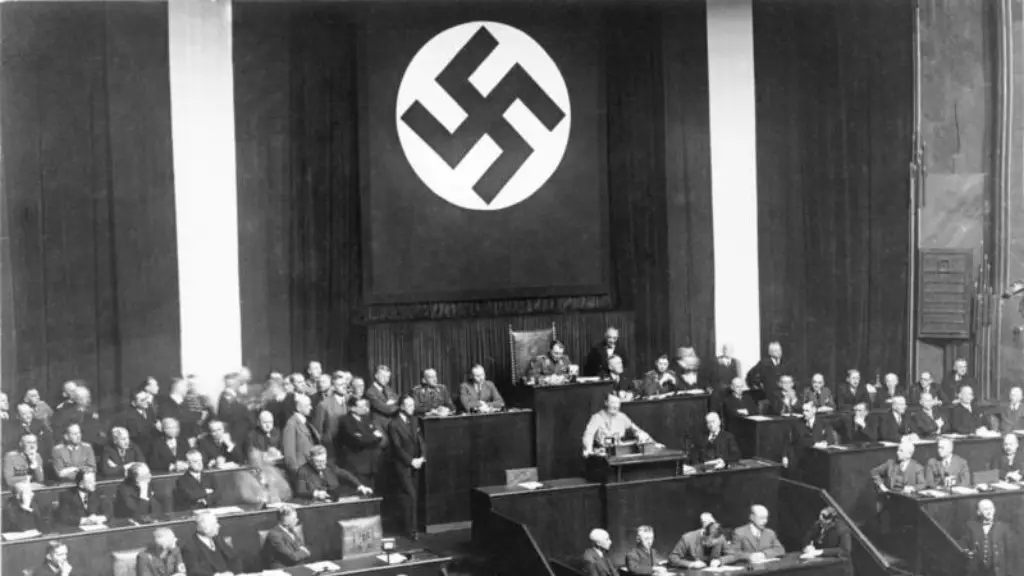Kim Jong Un is the Supreme Leader of North Korea, a position he inherited from his father, Kim Jong Il, in 2011. Not much is known about his personal beliefs, but he is a staunch believer in the North Korean state ideology of Juche, which prioritises self-reliance. He has also expressed a commitment to continue his father’s “military first” policy, prioritising the country’s military over all other sectors. Given the secretive nature of the North Korean regime, it is difficult to know definitively what Kim Jong Un believes in. However, these two key ideas – Juche and military first – give us some insight into the priorities of the North Korean leader.
From what I can tell, Kim Jong Un believes in a few things:
1. The power of the military – This is evident in the way he has maintained tight control over the country’s armed forces, and in his continued development of North Korea’s nuclear capabilities.
2. The importance of propaganda – Kim Jong Un knows that propaganda is a powerful tool, and he uses it to his advantage. This is evident in the way he is constantly portrayed in the media, and in the way that the North Korean people are kept isolated from the rest of the world.
3. The need for complete control – Kim Jong Un is a dictator, and he belief in maintaining complete control over the country and its people. This is evident in the way he has cracked down on dissent, and in the way that he has kept North Korea largely closed off from the rest of the world.
What does North Korea believe in?
North Korea is an officially atheist state, but its constitution guarantees free exercise of religion. Religious practice is allowed as long as it does not introduce foreign forces, harm the state, or harm the existing social order.
Since taking power in 2011, Kim Jong-un has made a number of changes in North Korea, including bringing back terminology such as communism and the socialist economy. He has also made Kimilsungism-Kimjongilism the main ideology of the country. These changes appear to be an attempt to move away from the policies of his father, Kim Jong-il, and return to the values of his grandfather, Kim Il-sung.
What is North Korea’s main religion
Although North Korea is officially an atheist state, there are some estimates that suggest that some religions do exist within the country. These include the Korean religions of Shamanism and Chondoism, as well as Christianity and Buddhism. The North Korean constitution officially guarantees freedom of religion, but in reality this is not always the case.
North Korean human-rights theory is based on Marxist theory, Confucian tradition, and the Juche idea. According to this theory, rights are conditional rather than universal, and collective rights take priority over individual rights. Welfare and subsistence rights are important to North Koreans, as they are essential for survival.
Is the Bible allowed in North Korea?
Christians in North Korea are persecuted for their faith. They must meet in secret to worship and cannot tell others about Jesus. If they are caught with a Bible, singing a hymn, or praying, they can face up to 15 years in a labor camp.
The Democratic People’s Republic of Korea (DPRK) is notoriously hostile to anyone of faith, but especially Christians. Christians in the DPRK are forced to place their loyalty to the state above their loyalty to God. Churches are closely monitored by the state and are not allowed to act or organize outside of state entities. Christianity also has ties to the world outside of the DPRK, which is seen as almost uniformly threatening by Pyongyang.
What kind of dictatorship is North Korea?
Though North Korea nominally holds elections, they have been widely criticized as sham elections. This is because North Korea is a totalitarian dictatorship with a cult of personality around the Kim family. This means that the North Korean government has complete control over the country, and does not allow for any real political dissent or opposition. As such, the elections are not free and fair, and do not truly reflect the will of the people.
The Democratic People’s Republic of Korea (DPRK or North Korea) has been led by the Kim family for 70 years. The country is an authoritarian state, and citizens have little to no say in how the government is run. North Korea is one of the most isolated countries in the world, and its people live in poverty and fear.
What are strict rules in North Korea
As a general rule, it is always best to declare all items that you are bringing into a country, especially when that country has strict laws about what can be brought in. In the case of North Korea, it is illegal to bring in religious, pornographic or political items. Therefore, it is important to declare all published material and electronic devices when you arrive, in order to avoid any potential problems.
It is deeply concerning to hear reports of Christians being imprisoned and tortured simply because of their faith. This is a gross violation of their human rights, and their families should not be targeted either. This must be stopped immediately.
Does North Korea have a child limit?
The North Korean government has publicly announced its policy of encouraging population growth and large families. This policy is in line with the country’s stated goal of becoming a self-reliant nation.According to one Korean American scholar who visited North Korea in the early 1980s, the country has no birth control policies; parents are encouraged to have as many as six children. It is unclear how effective this policy has been in increasing the population, but it appears that the government is committed to increasing the size of the population.
Kim Kardashian is a Christian and has described herself as “really religious.” She was educated in Christian schools of both the Presbyterian and Roman Catholic traditions. Kim is a role model for many young women and is an example of how you can be successful and religious at the same time.
Why are Americans not allowed in North Korea
The Department of State urges American citizens to avoid all travel to North Korea due to the serious risk of arrest and long-term detention. U.S. citizens in North Korea are at serious risk of arrest and detention, and currently there are no means for U.S. citizens to depart the country. The Department of State has received reports of citizens being detained or imprisoned without trial, often for political reasons. American citizens have been subject to arbitrary arrest and long-term detention. If you choose to travel to North Korea despite these warnings, you should have no expectation of privacy and should exercise extreme caution when using electronic devices that connect to the Internet or have GPS capabilities.
The five things that are prohibited in North Korea are:
1. Foreign movies and songs are not allowed.
2. Making international calls is a crime.
3. Disloyalty to the leader can mean the death penalty.
4. Three-generation punishment is in place.
5. Only government-approved haircuts are allowed.
Is freedom of speech allowed in North Korea?
The North Korean government places strict controls on the country’s mass media in order to mold public opinion and prevent the spread of information that could be damaging to the state. The constitution nominally provides for freedom of speech and the press, but the government routinely disregards these rights. North Koreans who attempt to access foreign media or share information with others face severe penalties, including imprisonment. As a result, very little accurate information about conditions inside North Korea ever reaches the outside world.
While the South Korean government is sympathetic to Christianity, the country’s constitution guarantees freedom of religion and separation of church and state. The government considers Christianity to provide some ideological protection against their Communist neighbor.
Final Words
Kim Jong-un believes in the ideology of “Juche” which is a mix of Marxism and nationalism. He also promotes the idea of “Songun” or “military-first” policy which means giving the Korean People’s Army priority over all other aspects of state and society.
Kim Jong Un believes in the power of the state and the importance of maintaining a strong military. He also believes in the idea of self-reliance and has worked to make North Korea more economicallyindependent.
